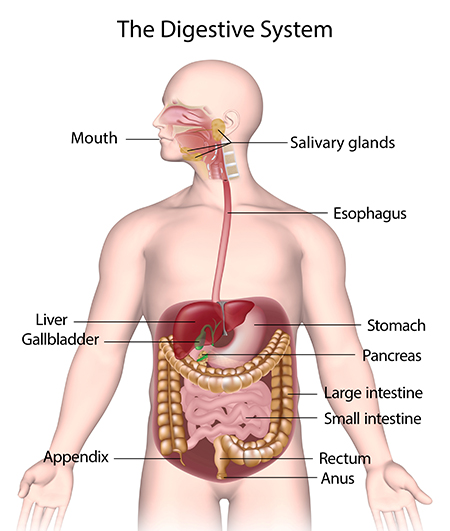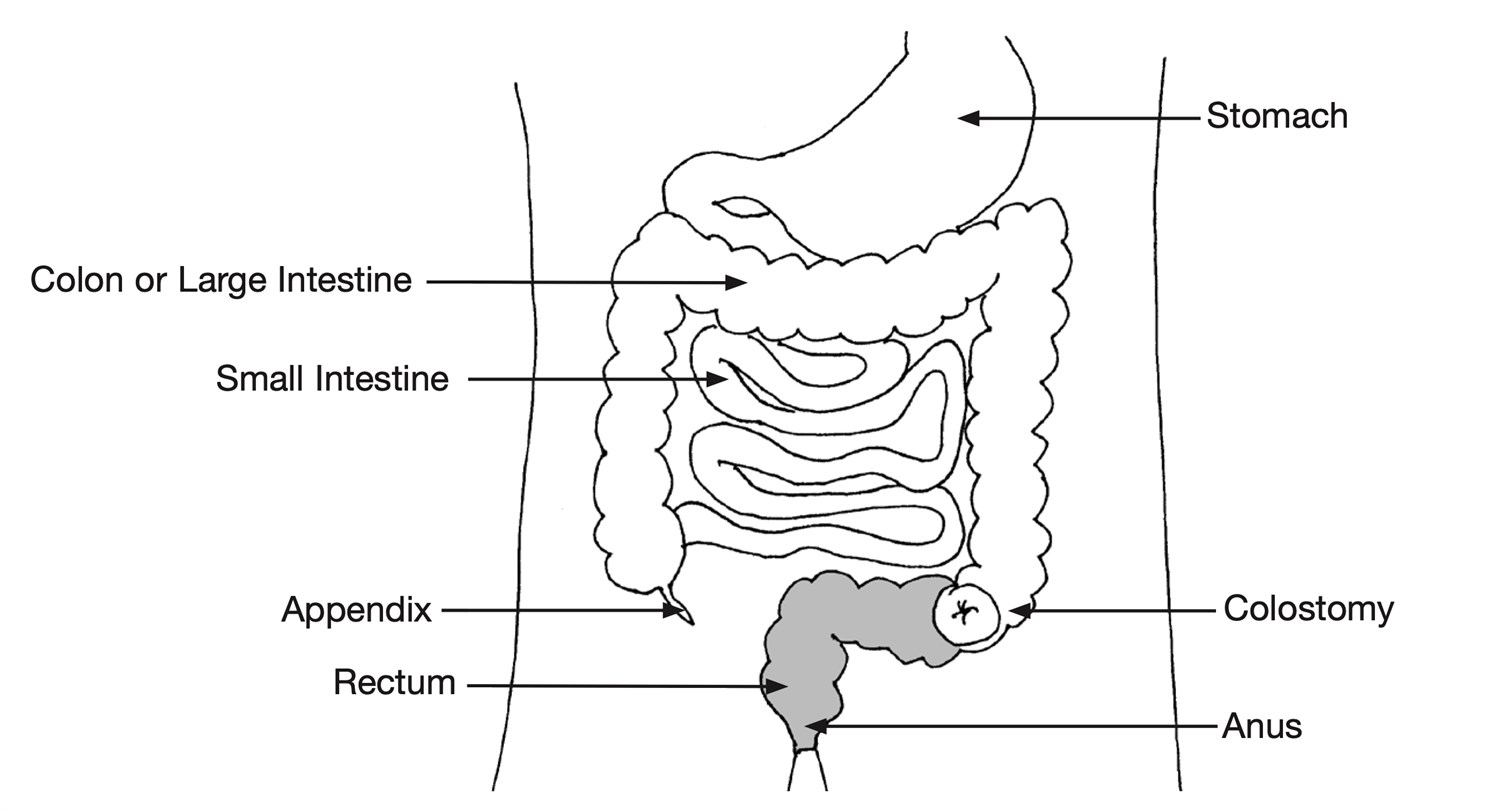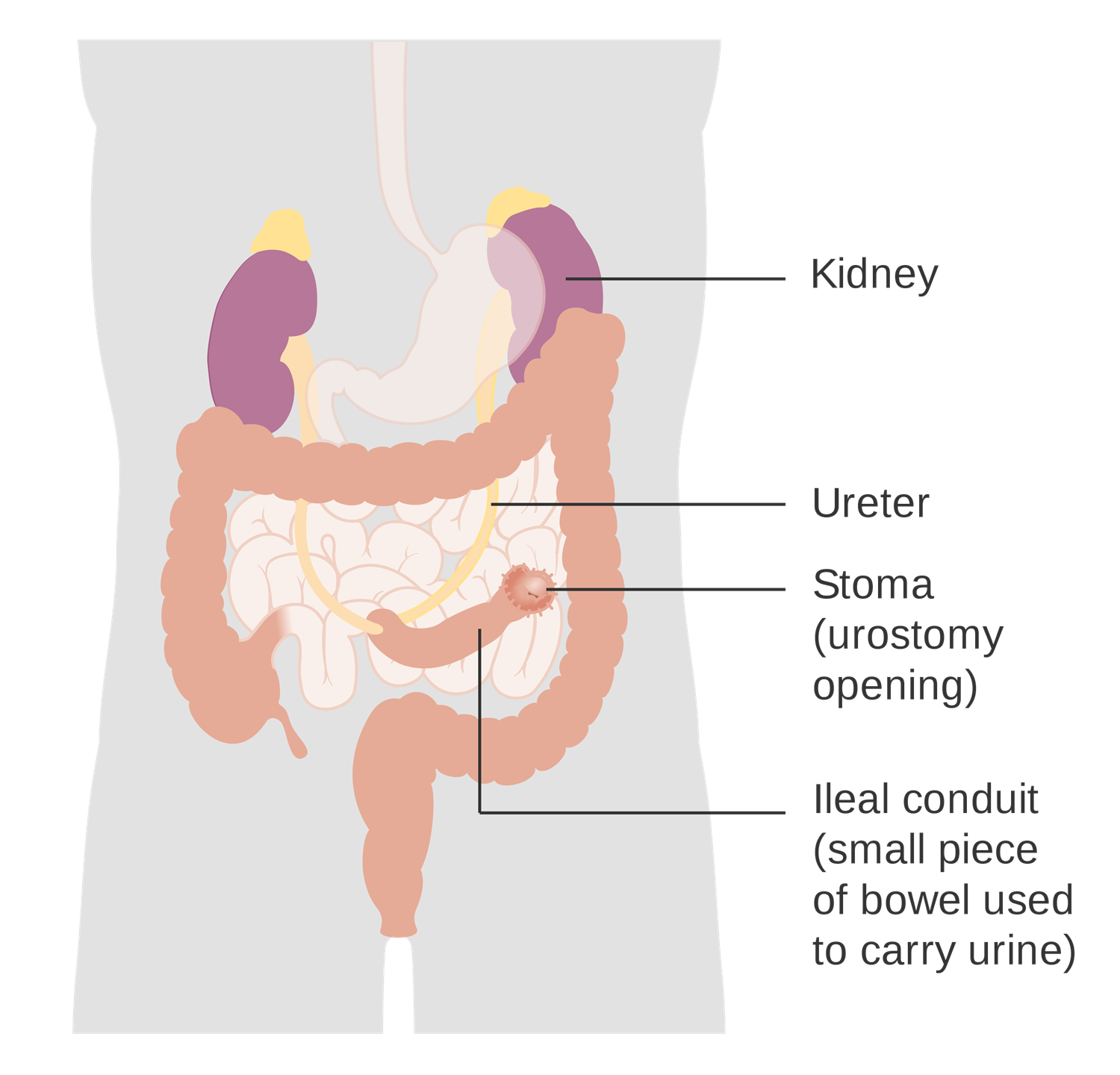An ostomy is an opening on the abdominal wall for waste products to move out of the body. Surgeons create it when a medical condition is so severe that an ostomy offers a better alternative.
Gastrointestinal (GI) Tract
To really understand an ostomy, it helps to know a little about the body’s anatomy. The gastrointestinal tract begins with the esophagus (the tube connecting the mouth and stomach) and continues through the stomach, small intestine, large intestine (colon), rectum, and anus.

Food is swallowed in the esophagus, mixed and churned in the stomach, and digested and absorbed in the small intestine. The waste leaves the small intestine as liquid. The colon absorbs water from the liquid material and stores the remainder as formed stool until it is passed voluntarily out of the body through the rectum.
Your Digestive System & How it Works
What is a Colostomy?
A colostomy is creation of a passageway the brings the end of your colon, also called the large intestine, to an opening in the skin called a stoma or ostomy, usually on the left side of your lower abdomen.
People need to have a colostomy for many reasons including cancer, Crohn’s disease, perforations of the colon, accidents causing injury to the colon and congenital problems. Some colostomies are temporary and some are permanent. Your pattern of having a bowel movement with a colostomy will depend on how much of your colon was removed and what your bowel pattern was like before surgery.
Most people who have colostomies continue to have normal lives. They go to work, play sports, have babies and do the things that most people do. That is not to say that having a colostomy is nota life-changing experience. It is a life-changing experience, but the changes can be incorporated into your lifestyle.

What is a Urostomy?
With a urostomy, a piece of small intestine (ileum) is used as a conduit for urine. The ureter, or the tube that carries urine from the kidneys to the bladder, is diverted through this piece of small intestine. The stoma opening allows urine to flow out of your body and into an ostomy pouch. Urostomies are not reversible.

Appliances and Care
An appliance is necessary for ostomies. Usually, a bag-like device is applied to the ostomy to collect the waste. It adheres to the body and cannot be seen through clothing.